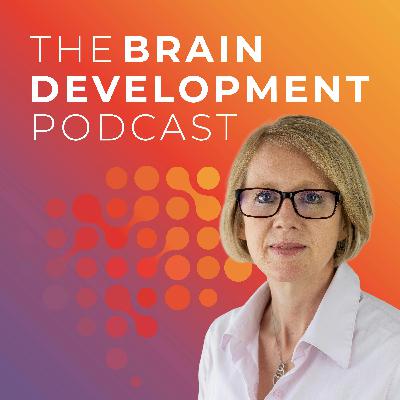In this episode of the Brain Development Podcast, Lara explores the intricate subject of methylation and its vital role in supporting the health and development of neurodiverse children, including those with autism, ADHD, and OCD. She is joined by Vicky from The Happy Healthy Unicorn, who breaks down methylation using the analogy of interconnected cogs, highlighting its role in activating neurotransmitters and hormones.
Vicky explains that many autistic children are under-methylated, which can significantly impact their brain function and behaviour. She warns of the potential risks associated with high-dose folate supplementation without understanding a child’s unique biochemical needs. Drawing from her training with the Walsh Institute, she shares practical strategies to support methylation through gut health, digestion, and proper nutrient absorption.
This conversation aims to equip parents with both knowledge and hope, demonstrating that with targeted interventions, meaningful improvements in a child’s wellbeing and behaviour are achievable.
Key Takeaways:
Methylation Basics: Methylation is a critical biological process involving methyl groups that are essential for the functioning of neurotransmitters, hormones, and other systems. Under-methylation is common in neurodiverse children, especially those with autism.
Gut Health Matters: A healthy gut is crucial for producing B vitamins needed for methylation. Issues like poor digestion, low zinc, or imbalanced gut flora can disrupt this process, so gut health must be prioritised.
Nutrition is Key: Diets rich in protein, vegetables, and essential nutrients support effective methylation. Children who are under-methylated often struggle with carbohydrate-heavy or low-protein diets, impacting nutrient absorption.
Personalised Approaches: Each child is unique. Tailored, gradual dietary and lifestyle changes are more effective than drastic overhauls, reducing stress and increasing long-term success.
Best Moments:
"Methylation is like a load of cogs... turning together to achieve a specific outcome." – Vicky
"In someone with an autism diagnosis, typically they are under-methylated, which means that they don't create enough of the methyl groups." – Vicky
"If you think about the methyl group... when he puts his cape on, his uniform, that he would have methyl and then he'd have this superpower." – Vicky
"If you can't digest protein, you're not gonna access methionine, which is an essential part of your methylation cycle." – Vicky
Host Bio:
Lara Barnes, a successful woman in tech, found herself navigating her son’s behavioural, learning, and speech challenges. This journey led her to study functional neurology and brain development, ultimately transforming her son's life. Through the Building the Brain Podcast, Lara empowers parents with insights on how to support their children’s development and unlock their potential.
TikTok
Instagram
LinkedIn
Website
Guest Bio:
Vicky is the founder of The Happy Healthy Unicorn and mum to her inspiring autistic daughter, Rose. With a background in health sciences and a BSc in Human Biology, she originally planned to become an NHS dietitian. However, her journey changed course when her daughter’s needs deepened following the birth of her second child.
Driven to understand autism and neurodevelopment, Vicky immersed herself in research and training, focusing on root-cause healing and whole, person care. The Happy Healthy Unicorn was born from this journey, a compassionate, science-backed space for families seeking more than vague advice and waitlists.
Rose's transformation inspired Vicky’s mission. Through supporting her daughter, Vicky uncovered deep insights into her own health and healing. Today, she guides other families with a blend of scientific knowledge, lived experience, and heartfelt empathy.
Website
Book a Consultation






